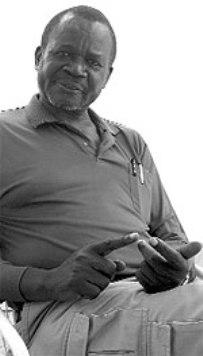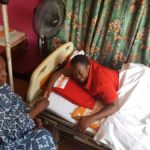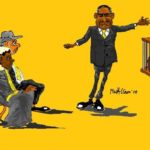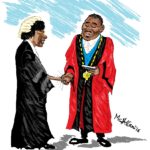Former Minister Information and Communication Technology and long time Samia Bugwe Nouth Member of Parliament Aggrey Siryoyi Awori is dead.
He was born in February 1939 and so he died aged 83.
Awori died today in a Naalya Hospital where he has been battle sickness related with old age. He has been in and out of hospital for the last two years.
Awori’s oratory and understanding of the political landscape will be missed especially at the time the country seem to be at the crossroads between the old and young generations.
He represented Samia-Bugwe North in parliament from 2001 until 2006. Awori was an outspoken opposition on the Uganda People’s Congress ticket before switching to National Resistance Movement in 2007 where he was appointed a Minister of Information and Communications Technology.
Awori was born on 23 February 1939 at Budimo Village, in Bukedi district that later became Tororo before Buisa district was carved out Tororo near the Ugandan/Kenyan border as the tenth of seventeen children. His parents were Canon Jeremiah Musungu Awori, a pioneer African priest of the Anglican Church in East Africa and Mrs. Mariamu Odongo Awori, a nurse and community teacher.
After his primary education in his home area, he attended Nabumali High School for his O level and King’s College Budo for A level. While at Kings College Budo (1959 to 1961), Awori was selected among a few others for elite military officers training at Sandhurst Military College in the United Kingdom. His father Canon Awori, however, rejected the idea of his talented son joining the military.
From 1961 to 1965, he studied at Harvard University on a scholarship. The first year he took nuclear physics but then switched over to political economics.
While at Harvard, Aggrey became the first person in heptagonal track history to win three events – the long jump, high hurdles, and 60-yard dash, tying the heps record in the hurdles and setting the mark in the dash. He also ran on the victorious mile relay team that tied the heptagonal record. By the time he graduated from Harvard, Awori held three outdoor and five indoor school records. He also represented Uganda in the 110 meters hurdles at the 1960 Summer Olympics and the 1964 Summer Olympics, but failed to win any medals.
In 1967, he was appointed director of Uganda Television but was jailed after Idi Amin took over in 1971, after Amin’s downfall, he returned to Uganda and ran for Nakawa National Assembly seat in 1980 elections but lost and was subsequently appointed Uganda’s Ambassador to the US. He was transferred and posted Belgium in 1985 by the new regime of Tito Okello but was dropped in 1987 by Yoweri Museveni who had just captured power from Okello.
Awori returned to Uganda and started to build up a rebel group operating from Eastern Uganda named Force Obote Back Again (FOBA). In 1992, he dissolved his rebel group, which had consisted mainly of young fighters. In 1993.
He was elected a member of the Constituent Assembly to make the Constitution and in 2001 contested for presidency were he got 1.14 per cent. Awori used his parliamentary seat to unearth corruption and other ills in government. It is during his time with others like late Patrick Mwondha, Ben Wacha late Ekuulo Epark and others in parliament that President Museveni still talks about how parliament gave him hard time, but the fact is that they didn’t give him hard time but rather they were doing their work of checking the excesses of the executive.








